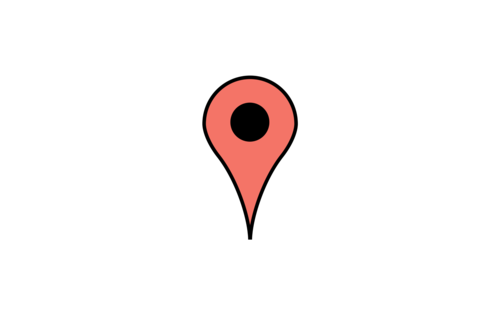Earlier today I ordered some groceries.
About an hour later, I heard a ping on my phone: “Your order is on its way!”
I checked the app to see when it would arrive—in only 20 minutes!
Ahhhh—the joys of VC-subsidized living.
I went back to the book I was reading.
At some point, I realized that a decent chunk of time had gone by, and that I was still without my food. Hmmm. I flipped open the app to look at the location of the driver. They were a few blocks away, seemingly driving around in circles.
I shot them a text through the app: “Hey! It looks like you’re going the wrong way. Here’s how to get to my place…”.
But they still kept driving around in circles.
I watched them repeat the same 5 block drive at least 6 times.
“OK this is getting ridiculous…”
I assumed there must be something wrong with the app. It must be reporting their location incorrectly.
Nope.
The driver was actually this confused. After what must have been her 11th rotation, she gave me a call.
“Hey! I’m a little lost…”
I explained to her how to get to my place, and even sent her a text message with step by step instructions.
But it didn’t help.
I watched her pin in the app get further and further away from me… at then it turned, getting closer to my place. Then, at the same spot as before, she started doing that same loop again.
It was as if a black hole kept sucking her in.
At which point she called again. “Hey—so I keep following the navigation in the app, and it keeps telling me to do this.”
I told her to open up Google or Apple Maps and type in a new address—one that was just a half block away from me. Maybe that would fix things.
She said it wasn’t working.
So I had her open the map on her phone and I told her where to look, and explained which turns she needed to make to get to me.
“Okay, terrific! I think I’ve got it!”
But the black hole sucked her up yet again.
I was truly baffled by the whole situation, and started to think about what was going on there. According to her, the app kept telling her to make this same loop, time after time… and she kept doing it.
Obviously, this route wasn’t getting her where she needed to go, and I assume that she realized it after the second or third time. So what’s going on here?
Here’s what I think:
Her reliance on the technology had turned off her own internal guidance system. She was listening to the instructions of the phone, and so seemed to turn off her brain’s critical thinking and problem solving modules.
I tried to snap her out of it by having her open the map, look at my location, and think, step by step, how she could get there. But that didn’t seem to work. She was on autopilot, listening to the authoritative voice of Google Maps and doing exactly what it said.
I sat back and thought a bit more about this phenomenon, and how it plays out in at so many different levels in our world.
We see the same thing in mass movements. The members of the crowd just turn off their own internal guidance mechanisms and do whatever the leader says.
We see the same thing in the any boss/teacher-subordinate relationship, too. We defer to our bosses out of habit, and because it’s just so much easier. We instantly trust what our personal trainer tells us. We assume our teacher is right, and ingest the information she gives us with little question or thought.
This way of operating is the easy way out. It’s the path of least resistance. But it doesn’t necessarily lead to a job well done or a thriving life.
As humans, it’s our birthright to figure out the world around us. It’s our duty to play with the environment around us, encounter problems, and figure out how to solve them. You see kids doing this constantly. It’s what we’re made to do. We build up models of the world, discover shortcomings in them, and then manipulate and re-build them to reach a higher level of functioning and understanding.
I don’t blame the driver for her poor showing today. Perhaps she was just exhausted or hungry. But it did get me thinking about how technology causes us to outsource certain key functions of our lives. While I generally think that outsourcing things like navigation, to-do lists, etc. to technology is a good thing, there will always be unintended consequences—side effects. And the side effect of listening to the authoritative voice emanating from Google Maps and doing what he says is that you may keep your internal navigator turned off for too long.
Then, when things don’t quite work the way the voice in the phone says they will, you won’t know what to do. You won’t remember what it felt like to build up, and flip around, a map in your mind.
You won’t remember what it felt like to scan the horizon, infer from your surroundings which path is most likely to be right, and plow forward. You won’t remember what it felt like to be fully human, operating according to your own, vibrant internal guidance system.
And that would be a tragedy.





